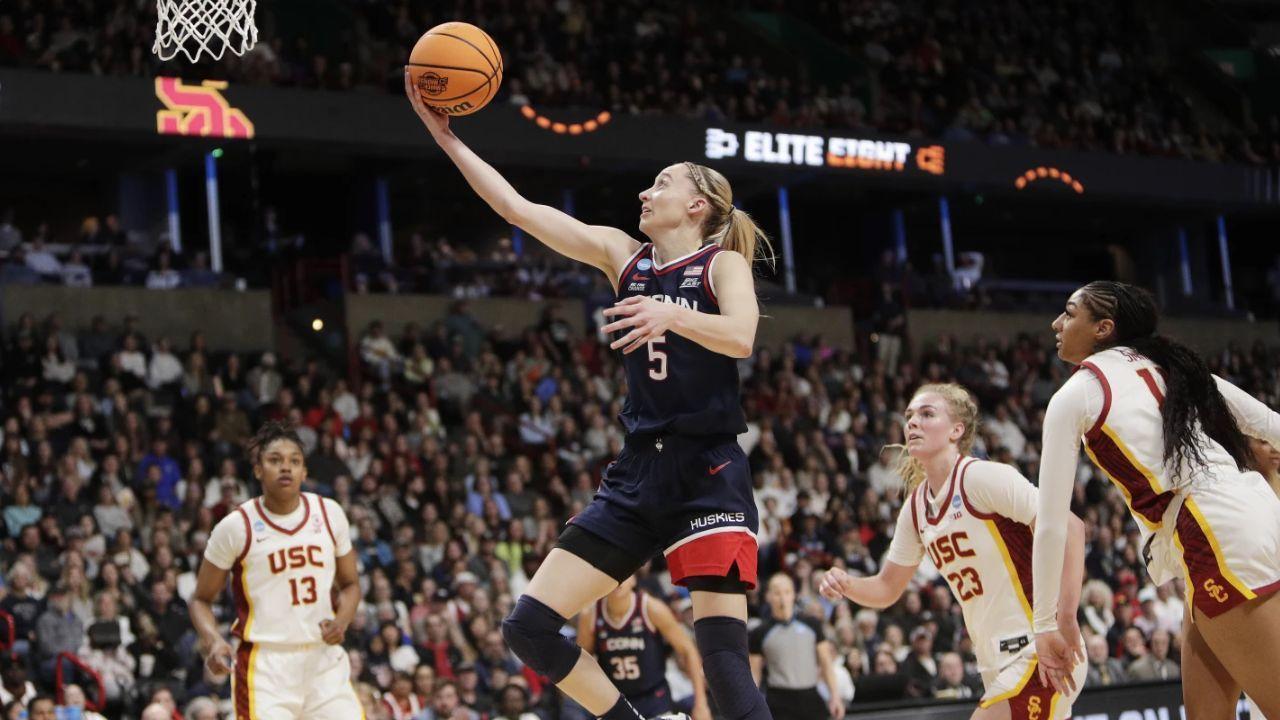
Post by: Vansh Kumar
Nutrition plays a crucial role in athletic performance, helping young athletes perform at their best and stay healthy. Whether you're a budding athlete or a seasoned sports enthusiast, understanding nutrition basics is key to achieving peak performance.
Hydration is fundamental for athletes. Drinking enough water throughout the day and during sports activities helps maintain hydration levels and supports overall performance.
Balanced meals are essential. Eating a variety of nutrient-rich foods such as fruits, vegetables, whole grains, and lean proteins provides the energy and nutrients needed for optimal performance.
Before exercise, carbohydrates are crucial. Foods like whole grain bread, pasta, and fruit provide the body with energy for physical activity.
During exercise, electrolytes become important. Consuming foods or drinks with electrolytes, like sports drinks or bananas, can help replace those lost through sweat.
Protein aids in muscle repair and growth. Lean sources such as chicken, fish, eggs, and beans are great options for athletes.
After exercise, recovery is crucial. Consuming a post-workout snack or meal with carbohydrates and protein helps muscles recover and replenishes energy stores.
Snacks can fuel athletes throughout the day. Opt for healthy options like nuts, yogurt, or fruit to maintain energy levels between meals.
Avoid excessive sugar and processed foods, which can lead to energy crashes and poor performance.
Listening to your body is key. Eat when hungry and drink when thirsty to maintain optimal performance.
Remember, nutrition is individualized. What works well for one athlete may not work best for another. Experiment to find what fuels your body best.
By prioritizing proper nutrition, young athletes can enhance their performance and enjoy their sports journey to the fullest.
Hydration is incredibly important for kids to stay healthy and perform their best, whether in sports or daily activities. Here's why staying hydrated matters and how to do it right:
Water is like fuel for our bodies. It helps us stay healthy, energetic, and focused. When we play sports or run around, we lose water through sweat. Drinking enough water helps replace what we lose and keeps our bodies working well.
Not drinking enough water can make us feel tired, dizzy, or even give us headaches. These are signs that our bodies need more water to stay hydrated.
Doctors recommend that kids drink about 6-8 cups of water every day. If it's really hot or we're playing sports, we might need even more. It's important to listen to our bodies and drink when we feel thirsty.
Drink water before, during, and after playing sports or being active. This helps keep our bodies cool and our muscles working well. We can also drink water with meals and snacks to stay hydrated throughout the day.
While water is the best choice for staying hydrated, we can also drink natural fruit juices or sports drinks that have electrolytes when we're playing sports. But remember, drinks with lots of sugar are not good for our bodies.
Sometimes, drinking enough water can seem boring. We can make it fun by adding slices of fruit like lemon or berries to our water, or using colorful water bottles that we like.
It's important to teach our friends and family about the importance of staying hydrated. We can remind each other to drink water and stay healthy together.
Remember, staying hydrated is one of the easiest and most important things we can do to keep our bodies strong and ready for all the fun activities we love to do!

Eating balanced meals is essential for fueling your body and supporting your overall health. When we talk about balanced meals, we mean meals that contain a mix of different food groups that provide the nutrients your body needs.
A balanced meal should include foods from all the main food groups. That means fruits, vegetables, proteins, carbohydrates, and healthy fats. Each of these food groups plays a role in keeping your body healthy and strong.
Make sure to include plenty of fruits and vegetables in your meals. They are packed with vitamins, minerals, and fiber that help your body function properly. Try to eat a rainbow of colors to get a variety of nutrients.
Proteins are important for building muscles and repairing tissues. Good sources of protein include lean meats like chicken and turkey, fish, eggs, beans, and nuts. Including protein in your meals helps keep you strong and energized.
Carbohydrates are your body’s main source of energy. Choose whole grains like whole wheat bread, brown rice, and oats, as well as fruits and vegetables for healthy carbohydrates that give you sustained energy.
Don’t forget about healthy fats! Avocados, nuts, seeds, and olive oil provide healthy fats that are important for brain function and absorbing vitamins. Including a small amount of healthy fats in your meals helps you feel satisfied and supports overall health.
Pay attention to portion sizes. Eating too much of any food group can lead to weight gain and other health issues. Balanced meals should have portions that make you feel full but not overly stuffed.
Planning your meals ahead of time can help you make sure they are balanced. Think about including different food groups in each meal to ensure you get all the nutrients you need throughout the day.
Finally, enjoy your meals! Eating should be a pleasurable experience. When you enjoy what you eat, you’re more likely to make healthy choices and feel satisfied.
By eating balanced meals that include a variety of foods from all the food groups, you’re fueling your body in the best possible way. Remember, nutrition is key to feeling energized, strong, and ready to take on whatever the day brings!
When you're running, jumping, or playing sports, your body needs energy to keep going. Carbohydrates are like the fuel that powers a car—they give your body the energy it needs to move and play. Carbohydrates are found in foods like bread, pasta, rice, fruits, and vegetables. When you eat these foods, your body breaks down the carbohydrates into sugar, which is then used as energy for your muscles and brain.
Eating carbohydrates before you play sports or have a big day of activity can help give you the energy to perform your best. Healthy carbohydrates come from whole grains like whole wheat bread and brown rice, as well as fruits like bananas and apples. These foods release energy slowly, keeping you feeling full and energetic for longer periods.
It's also important to eat carbohydrates after you're done being active. This helps your body recover and build up its energy stores for the next time you play or exercise. Snacks like whole grain crackers with cheese or a banana with peanut butter are great choices to help your body replenish its carbohydrates.
Remember, carbohydrates are an important part of a healthy diet for active kids. They give you the fuel you need to run, jump, and play your best. So, next time you're getting ready for a big game or a day of playing outside, make sure to include carbohydrates in your meals and snacks to keep your energy levels up and your body ready to go!
When you exercise or play sports, your muscles work hard. They need protein to repair themselves and grow stronger. Here’s why protein is crucial for muscle repair:
Protein is like the building blocks for your muscles. It helps them repair tiny tears that happen during exercise.
Eating enough protein helps your muscles grow stronger. This is important for athletes who want to improve their performance.
After a tough workout, your muscles need protein to recover quickly. This means less soreness and faster healing.
There are different types of protein foods you can eat. Lean meats, such as chicken and turkey, are great sources. Fish and eggs are also good choices.
If you’re vegetarian or vegan, you can get protein from beans, nuts, and tofu. These foods help your muscles just like meat does.
Kids and teens who play sports may need more protein than those who don’t. Eating protein with every meal helps keep your muscles strong.
Eating protein snacks, like Greek yogurt or peanut butter on whole-grain toast, helps your muscles between meals.
Remember, protein is essential for muscle repair and growth. Eating a balanced diet with enough protein helps you become a stronger and healthier athlete. So, make sure to include protein in your meals every day!
When we talk about healthy fats, we're referring to the kinds of fats that are good for our bodies. Unlike unhealthy fats found in junk food, healthy fats play an important role in keeping us strong and energetic.
Avocados are a great example of a food that's packed with healthy fats. They're creamy and delicious, and they help our bodies absorb important nutrients like vitamins A, D, E, and K. Next time you have a sandwich, try adding a few slices of avocado to make it even tastier!
Nuts are another fantastic source of healthy fats. Whether it's almonds, walnuts, or peanuts, these little guys are loaded with good fats that give us energy and keep our hearts healthy. Just a small handful of nuts can make a big difference in how we feel.
Do you like fish? Fish like salmon, trout, and sardines are swimming with omega-3 fatty acids, which are super important for our brains and bodies. These fats help us concentrate better in school and perform better in sports. So, next time you're at dinner, ask for a piece of grilled salmon!
Olive oil is another hero in the world of healthy fats. It's great for cooking or making salad dressings. Olive oil contains monounsaturated fats, which are good for our hearts and can help lower bad cholesterol levels. It's like a superpower in a bottle!
Our bodies need healthy fats to grow strong muscles, keep our brains sharp, and have enough energy to play all day. So, remember to include foods like avocados, nuts, fish, and olive oil in your meals. Your body will thank you for it, and you'll feel ready to tackle any adventure that comes your way!
When it comes to athletic performance, timing your meals and snacks can make a big difference. Here’s why timing matters and how you can optimize it:
Eating the right foods before exercise is like putting gasoline in a car before a long trip. Carbohydrates are essential here because they provide energy. Opt for whole grains like oatmeal or whole wheat toast about 1-2 hours before activity. This gives your body time to digest and convert those carbs into fuel.
For prolonged activities or sports events, it’s important to stay hydrated. Sip on water or sports drinks that contain electrolytes to maintain hydration and replace lost minerals. Snack on easily digestible carbohydrates like a banana or energy bar if your activity lasts longer than an hour.
After exercise, your body needs protein to repair muscles and carbohydrates to replenish energy stores. Aim to eat a balanced meal or snack containing both protein and carbs within 30-60 minutes after physical activity. This could be a turkey sandwich on whole grain bread or yogurt with fruit.
Besides workouts, maintain a consistent eating schedule. Eat breakfast, lunch, and dinner, with healthy snacks in between if needed. This helps regulate blood sugar levels and keeps energy levels steady throughout the day.
Everyone’s nutrition needs are different, so pay attention to how your body feels during and after exercise. If you feel fatigued or lack energy, adjust your eating schedule or types of foods you eat accordingly.
For personalized nutrition advice, especially if you’re a competitive athlete, consider consulting a sports dietitian. They can help create a plan that optimizes your performance based on your training schedule and goals.
By timing your nutrition effectively, you give your body the best chance to perform at its peak. Remember, eating right is just as important as training hard when it comes to reaching your athletic goals!
When it comes to staying healthy, one of the best things you can do is avoid sugary drinks. Here’s why:
Sugary drinks like sodas, juices, and sports drinks are loaded with sugar. Too much sugar can lead to weight gain, tooth decay, and even health problems like diabetes.
These drinks provide calories but little to no nutrition. They can fill you up without giving your body the nutrients it needs to stay strong and healthy.
- Energy Crashes:
Drinking sugary beverages can cause energy spikes and crashes, leaving you feeling tired and irritable.
Consuming too much sugar over time can increase your risk of chronic diseases like obesity, heart disease, and high blood pressure.
Instead of sugary drinks, try these healthier alternatives:
Remember, what you drink is just as important as what you eat. By choosing healthier options and avoiding sugary drinks, you’ll be taking a big step toward a healthier and happier lifestyle. Your body will thank you for it!
Listening to your body means paying attention to the messages it sends you. It's like having a conversation with yourself without using words. Here’s how you can tune in:
Your body tells you when it needs fuel. Hunger is the signal that it's time to eat. Pay attention to how your stomach feels and how much food you need to feel satisfied. Eating until you’re comfortably full helps keep your body energized.
Sometimes, your body craves certain foods. Cravings can be a way for your body to tell you it needs specific nutrients. It’s okay to enjoy treats in moderation, but also try to satisfy your body’s needs with healthy choices.
Feeling tired or sore after exercise? That’s your body’s way of asking for rest. Rest is crucial for muscle repair and overall recovery. Listen to these signals to avoid injuries and burnout.
Thirst is a clear sign that your body needs water. Hydrating regularly helps maintain energy levels and keeps you focused. Water is the best choice for staying hydrated, but you can also drink sports drinks for electrolyte balance.
Your body also communicates through emotions. Feeling anxious or stressed can affect your appetite and digestion. Take time to relax and find ways to manage stress, like deep breathing or talking to someone you trust.
During physical activity, your body tells you when it needs more fuel or when it’s time to slow down. Breathing rate, heart rate, and muscle fatigue are all signs to pay attention to during exercise.
Make it a habit to check in with your body throughout the day. This helps you stay connected to its needs and adjust your eating and activity levels accordingly.
You know your body best. Trust what it’s telling you, whether it’s about sleep, nutrition, or physical activity. Listening to your body fosters a healthy relationship between your mind and body.
By listening to your body’s signals and responding with care, you can support your overall well-being and feel more in tune with yourself. Understanding these signals helps you make choices that keep you healthy and happy.
Planning ahead is a key strategy to ensure you perform your best in sports and other activities. Here’s why and how you should plan ahead:
Before you start planning, think about what you want to achieve. Whether it's improving your athletic performance, learning a new skill, or simply having fun, setting clear goals will guide your preparation.
Look at your week and see when you have practice, games, or other commitments. This helps you know when you'll be busy and when you'll have time to prepare.
Make sure you have all the equipment and gear you need for your activities. Check your sports bag to ensure everything is clean and ready to go.
Think about what foods will give you energy and help you perform well. Pack healthy snacks and meals that you can eat before and after your activities.
Fill up your water bottle and have it ready to go. Staying hydrated is important for athletic performance, so drink water throughout the day, especially before and after activities.
Plan time for rest and recovery between activities. This allows your body to heal and recharge so you can perform your best.
Take a moment to imagine yourself succeeding in your activities. Visualization can boost confidence and help you stay focused on your goals.
After your activities, take some time to reflect on how things went. What did you do well? What could you improve? Learning from your experiences will help you grow as an athlete.
Be prepared to adjust your plans if things change. Sometimes weather, schedules, or other factors can affect your activities, so it's important to be flexible and adapt.
Finally, don't forget to celebrate your successes! Whether it's reaching a goal, learning a new skill, or simply having a great time, celebrating your achievements reinforces your hard work and dedication.
By planning ahead and preparing carefully, you can maximize your performance and enjoy your activities to the fullest. Remember, preparation is the key to success in sports and in life!
When it comes to nutrition for athletic performance, sometimes it's best to seek advice from a professional. Here's why consulting a sports dietitian or nutritionist can be beneficial:
A sports dietitian or nutritionist can provide personalized guidance based on your individual needs and goals.
These professionals are trained to understand the unique nutritional requirements of athletes.
They can help you optimize your diet to support energy levels, muscle recovery, and overall performance.
They can assist with meal planning to ensure you're getting the right balance of carbohydrates, proteins, and healthy fats.
If needed, they can provide recommendations on supplements that may enhance performance.
They'll monitor your progress and make adjustments to your nutrition plan as needed.
They'll educate you on nutritional strategies that can help you reach your athletic goals.
Ensuring your diet supports health and safety is a priority for them.
Consulting a professional can lead to long-term benefits for your athletic career and overall well-being.
They often work closely with coaches and medical professionals to ensure a holistic approach to athlete health.
When you consult with a sports dietitian or nutritionist, you're investing in your performance and health. Their expertise can make a significant difference in how you fuel your body for success in sports and beyond.
Nutrition is crucial for young athletes to perform at their best and stay healthy. This article provides essential tips for achieving peak athletic performance through proper nutrition. It emphasizes the importance of hydration, balanced meals, carbohydrates for energy, protein for muscle repair, healthy fats, timing meals, avoiding sugary drinks, listening to your body, and planning ahead. Consulting a sports dietitian or nutritionist is recommended for personalized guidance on optimizing diet and achieving long-term athletic goals.
Dear Readers, the information provided in this article aims to offer valuable nutrition tips for young athletes. While the content is educational and geared towards children and adolescents, it is essential to consult with healthcare professionals or qualified experts for personalized advice regarding specific health concerns or conditions. Each individual's nutritional needs may vary, and professional guidance ensures optimal health and safety during athletic pursuits.
Certainly! Here are some FAQs related to the topic of nutrition for athletic performance:
Nutrition is crucial for young athletes because it provides the energy needed for optimal performance, supports growth and development, aids in muscle recovery, and helps maintain overall health and wellbeing.
Before a game or practice, young athletes should focus on consuming carbohydrates for energy. Good choices include whole grain pasta, bread, fruits, or yogurt. It's also important to stay hydrated.
Sports drinks can be beneficial during prolonged or intense exercise to replenish electrolytes lost through sweat. However, for shorter activities or practices, water is usually sufficient for hydration.
Athletes can ensure they get enough protein by including lean sources such as chicken, fish, eggs, beans, or nuts in their meals and snacks throughout the day. Protein is essential for muscle repair and growth.
Healthy snacks for athletes include nuts, yogurt, fruit, whole grain crackers with cheese, or a peanut butter sandwich. These provide sustained energy and help maintain blood sugar levels between meals.
#trending #latest #AthleteNutrition #SportsNutrition #HydrationTips #HealthyEating #FuelYourBody #PerformanceNutrition #EatClean #StayHydrated #NutritionTips #HealthyAthlete #breakingnews #worldnews #headlines #topstories #globalUpdate #dxbnewsnetwork #dxbnews #dxbdnn #dxbnewsnetworkdnn #bestnewschanneldubai #bestnewschannelUAE #bestnewschannelabudhabi #bestnewschannelajman #bestnewschannelofdubai #popularnewschanneldubai

Natural Remedies to Boost Your Plant Care Routine...Read More.

Explore the rise of global sports competitions from local origins...Read More.














7 Free Ghibli-Style AI Image Editors to Try Now
Transform your images into Ghibli-style art with these 7 free AI tools. From dreamy landscapes to an

China Conducts Military Drills Near Taiwan
China's coast guard conducted patrols, inspections, and drills near Taiwan as Beijing announced mili

Man City’s Haaland suffers ankle injury, awaits tests
Erling Haaland picked up an ankle injury in Man City’s FA Cup win. He will see a specialist to asses

New E-Skin Enables Touchless Control and Robot-Like Sensation
Revolutionary e-skin mimics human touch, allowing touchless control, aiding robots, and helping peop

UAE to Launch Digital Dirham CBDC by Year-End for Secure, Efficient Payments
The UAE will introduce its Digital Dirham CBDC by year-end, enhancing security, transparency, and ef